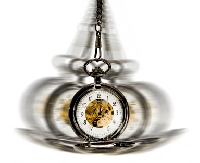How to know what time it is
By Catalogs Editorial Staff

How to know what time it is – because time is not always relative
There was a famous song that asked that question…so does anyone really know what time it is? And is a glance at your phone enough to answer the question accurately?
Maybe. But it really depends on exactly what you’re asking. The fact is, there are a lot of ways to check the time. And people have been defining and tracking time for a centuries.
The history of tracking time
Watches
Did you know that people have been telling time with watches since the 1600’s? Early watches were mechanical miniatures of mechanical clocks, and were worn on chains around the neck like a pendant. These early watches were more of a status symbol than a good way to know what time it really was … they were only marginally accurate, and were only owned by the wealthy.
~
Pocket watches soon followed, but the now most popular wrist watch didn’t make its appearance until 1868. Over the decades, fashion trends have favored gold watches, digital watches and colorful watches with interchangeable bands. Thankfully watch accuracy improved tremendously over the years, with mechanical watches now off by only a couple of seconds a day, and quartz watches loosing or gaining only a half second a day, on average.
As time pieces go, the modern watch remains a good tool for how to know what time it is. But many people predicted that watches would go the way of the payphone, and for much the same reason. With the ever-present cell phone in hand, neither watches nor pay phones were thought to be really needed.
But industry leaders found reason to celebrate in 2011, when watch sales jumped. The watch, it seems, has come full circle. As when it was first introduced, it has become a status symbol once again, with sales of watches at all price points rising.
Clocks
Clocks came before watches, with the first known appearance of a water clock around the 16th century BCE in Babylon, Egypt and some parts of Asia. Basic gears were added by the Greeks and Romans in the first century BCE, which allowed clocks to work in areas where water-based time keeping wasn’t feasable.
As with pocket watches and wrist watches, accuracy continued to improve over the decades. But the biggest change when Islamic craftsmen in the 800’s C.E. developed and added the elaborate interlocking system of gears and hands we take for granted in mechanical clocks today.
GPS or Radio Clocks
These days, most people rely on their cell phones to check the time, even if they’re wearing a watch or have a clock nearby.
Unlike the mechanical clocks, these timekeeping devices operate by receiving an electronic signal from a central location, like an atomic clock. If the device uses GPS system, precise time is computed through signals sent by several transmitters.
GPS technology is also being used in some high tech sports watches, allowing users to see the time for their current location — a big plus for people who frequently cross time zones.
Popular Savings Offers











